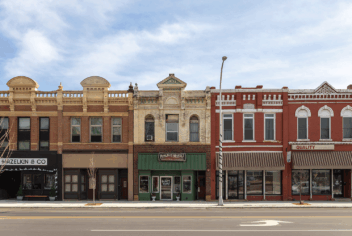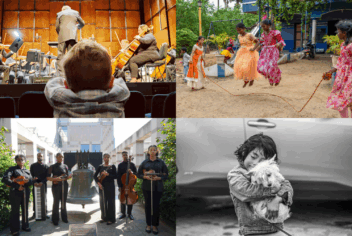While many of us love adorning workspaces with heavenly flowers and heart-shaped cards that mark Valentine’s Day, executive directors and HR departments often worry about how they can safely serve alcohol at special events on this or any special occasion.
Irresponsible hosting can result in claims and lawsuits, especially in alcohol-related accidents.
Whether the happy celebration is to revel or to raise funds, here are some factors to consider when determining how to reduce risks at these spirited gatherings.
Consider venues with a liquor license.
The first place nonprofit organizers might think to host a social event is on site at their main location.
However, a restaurant or a bar may be a wiser choice compared to the office or a private home. Hosting the party or social mixer at a business with a liquor license instead will help minimize liability risks.
If the venue selected doesn’t serve alcohol, make sure that serving alcohol on the premises is permitted and check the precautionary requirements.
Nonprofits who opt not to make reservations at an establishment that serves liquor should consider leaving the serving to professionals. It’s a good idea to hire a professional bartender, as most bartenders know better when to limit alcohol consumption and are trained to identify signs of intoxication.
Companies that provide bartenders should carry liability insurance to cover bartender negligence in the event that a minor or intoxicated adult is served.
Nonprofits should ask if companies providing bartenders carry the proper insurance and require, in the contract with them, that they add the nonprofit as an additional insured on their policy.
Finding a company that specializes in bartending for events is a great way to ensure that certified bartenders who are familiar with state laws and trained with serving guidelines are handling drinks.
Wherever you decide to celebrate, place prominent signs at the venue stating rules of conduct.
Check your insurance coverage.
While standard general liability insurance may cover events serving free alcohol under host liquor liability, the liability coverage may not apply to events where nonprofits sell alcohol, such as fundraisers.
In addition, selling liquor at an event might render the nonprofit liable under dram shop laws, which in some states may be stricter than host liability laws. For events where alcohol is going to be sold, nonprofits should be protected with liquor liability coverage.
If you are insured with Nonprofits Insurance Alliance, no worries, we’ve got you covered!
Unlike many of our for-profit competitors, our General Liability policy automatically includes Liquor Liability Coverage at no additional charge to you.
This means that in addition to having coverage for host liquor liability, you have liability coverage for events where liquor is sold.
It’s also a good idea for nonprofits to check whether their insurers offer resources that may help prevent claims, including claims arising out of fundraisers and the furnishing of alcohol.
Nonprofits Insurance Alliance offers detailed and interactive webinars where members can ask questions on these and other issues pertinent to the nonprofit community.
Consult your state’s host liability and dram shop laws.
While it’s tempting to include guests of all ages at friends- and family-oriented parties, the safest way to make sure underage guests aren’t served alcohol is to consider limiting the event to guests over the drinking age.
Nonprofit organizers should make no exceptions when checking ID. If there are volunteers at the event, they should be of or over drinking age and encouraged to limit their own alcohol intake.
To regulate events that provide liquor at no cost, most states have social host liquor liability laws.
These laws vary widely from state to state, but typically the organization hosting the event is held responsible if minors are injured or cause injury to others as a result of illegal alcohol consumption.
In most states, strict social host liability laws extend beyond underage drinking and can hold organizers responsible for injuries caused by intoxication, whether the intoxicated individual inflicts harm on themselves or on others.
If liquor is provided at a cost, dram shop laws apply in most states to determine who is liable when intoxicated adults or minors cause injuries.
In some states, the organization hosting can be held responsible if the alcohol sold to customers results in an alcohol-related accident that harms attendees.
If it’s proven a person became intoxicated at an establishment, the establishment can be held 100% liable in some states.
Nonprofits using a third-party vendor should ask that the contract include indemnification, a provision that transfers risk to the vendor.
Nonprofits in states that allow easy obtainment of liquor licenses should note that liability still exists in those states. Be sure to refer to these laws and understand them to better control the situation.
Controls can prevent accidents.
Nonprofits should encourage their guests to select a designated driver who will refrain from drinking. Savvy nonprofits might make arrangements with a rideshare company to provide rides to intoxicated guests.
To counter the effects of alcohol, it’s a good idea to offer non-alcoholic beverages and to serve food. Make sure guests have access to plenty of water.
Don’t rush too quickly to refill empty cocktail or and wine glasses or engage in activity that could create an atmosphere of pressure to drink. Never serve alcohol to guests who are intoxicated.
Toward the end of the evening, stop serving liquor entirely. Switching to soft drinks, tea, coffee, or non-alcoholic cocktails after a certain hour helps diminish the effects of alcohol.
With the right controls in place, nonprofits can minimize risks and guests can enjoy an accident-free experience!





